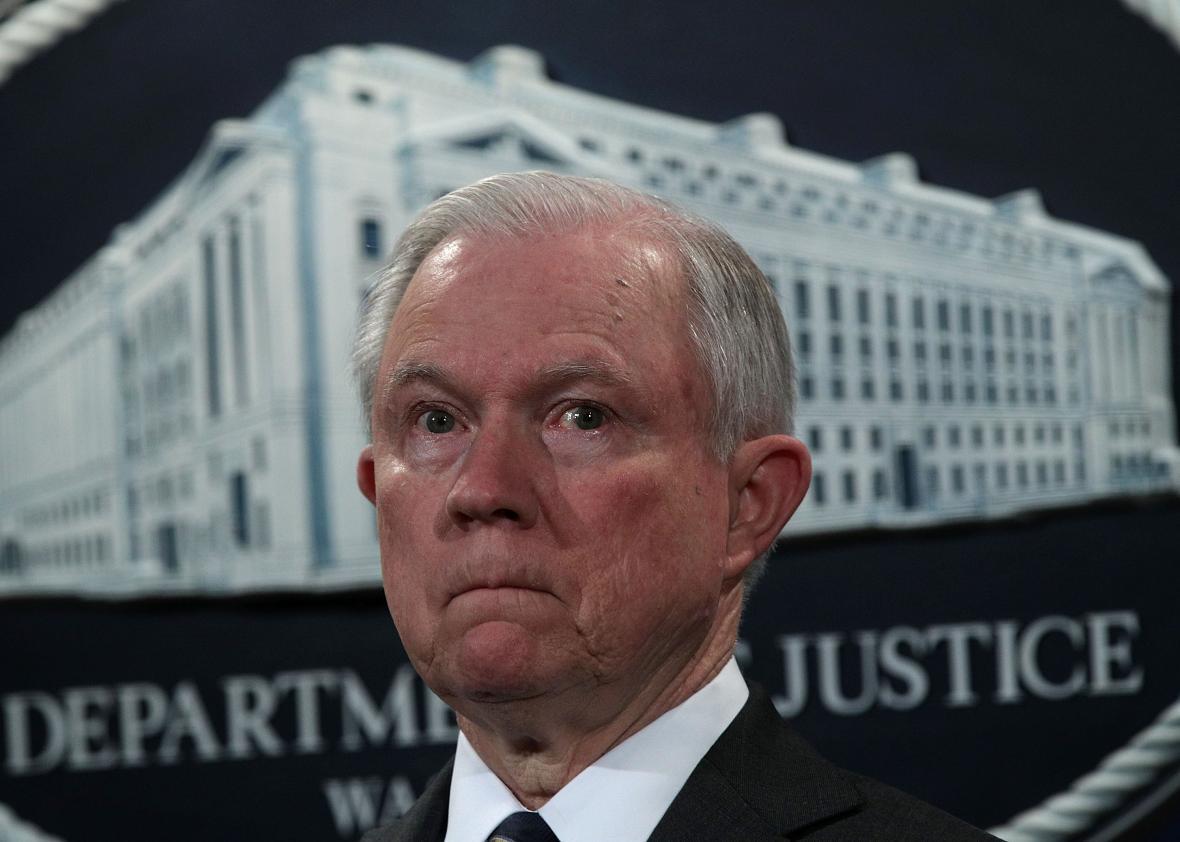On Tuesday, the Department of Justice announced a new policy depriving “sanctuary cities” of federal funds unless they comply with the administration’s crackdown on undocumented immigrants. The policy creates new criteria for Byrne Memorial Justice Assistance grants, which provides hundreds of millions of dollars to state and local law enforcement. Under the new guidelines, cities and state will not be eligible for these grants unless they:
- notify Immigration and Customs Enforcement officials at least 48 hours before incarcerated undocumented immigrants are set to be released, if ICE has expressed interest in detaining them
- allow ICE agents to access local jails
- abide by a federal law that stipulates that local jurisdictions can’t prohibit their employees from sharing information about immigration status with the federal government
These rules, particularly the first one, would largely override the central policy that gives sanctuary cities and states their name. Sanctuary jurisdictions refuse to comply with ICE detainers, requests that the federal agency sends to local jails to hold individuals for up to two days after their scheduled release so ICE agents can take them into custody. As a recent Massachusetts ruling illustrated, some cities and states do not permit local law enforcement to detain an individual after he should be free to go. In these jurisdictions, compliance with an ICE detainer would be illegal. That is why, to this point, the Justice Department had not required that all grant applicants comply with these detainers.
Instead, it has created a workaround. As Denver University law professor Christopher Lasch explained to Vox, local jails do not always have 48 hours’ advance notice of an individual’s release date. A huge number of people held in local jails are pretrial detainees who might post bond, persuade a judge to release them, or get their charges dismissed. When that happens, an individual should be free to go. But to comply with the DOJ’s new rules, a jail might have to hold such a person for 48 extra hours should ICE issue a detainer. That puts local jails in a bind: They can either violate state law and illegally deprive a detainee of her liberty, or breach the DOJ’s guidelines and risk losing federal dollars.
In April, a federal judge blocked an executive order that might have stripped sanctuary cities of a huge portion of their federal funding, holding that it violated the tenets of federalism and separation of powers. Tuesday’s policy is much more cleverly drafted and designed that that executive order. I asked Cody Wofsy, an attorney with the ACLU’s Immigrants’ Rights Project, whether he thought the new guidelines might be vulnerable to a legal challenge.
“My immediate question is, under what authority is the Justice Department imposing these conditions?” Wofsy said. Previously, the DOJ has conditioned grants on compliance with 8 U.S.C. 1373, which states that local jurisdictions can’t bar government workers from passing along information about immigration status to the feds. Nothing in that law gives the DOJ authority to condition grants on compliance with the newer, further-reaching rules it laid out on Tuesday. Indeed, the administration has not yet attempted to explain the legal basis of its new policy.
“Here, the DOJ seems to be going beyond 1373 and imposing additional conditions,” Wofsy told me, “without explaining where it gets the authority to do that.” That raises concerns similar to those that doomed Trump’s executive order on sanctuary cities. The Justice Department, which is part of the executive branch, cannot impose conditions on federal funding—that’s a power held by Congress. By adding conditions not imposed by the legislative branch, the DOJ appears to be usurping Congress’ authority. The result is a possible infringement upon constitutionally mandated separation of powers.
Throughout his campaign, Trump criticized President Barack Obama for his allegedly despotic use of executive authority at the expense of Congress. Sessions, too, railed against Obama’s executive orders during his years in the Senate. Now Sessions is trying to advance Trump’s crusade against sanctuary cities by expanding the executive’s right to withhold funds absent congressional input. That’s not just hypocritical. It’s very likely unconstitutional as well.
